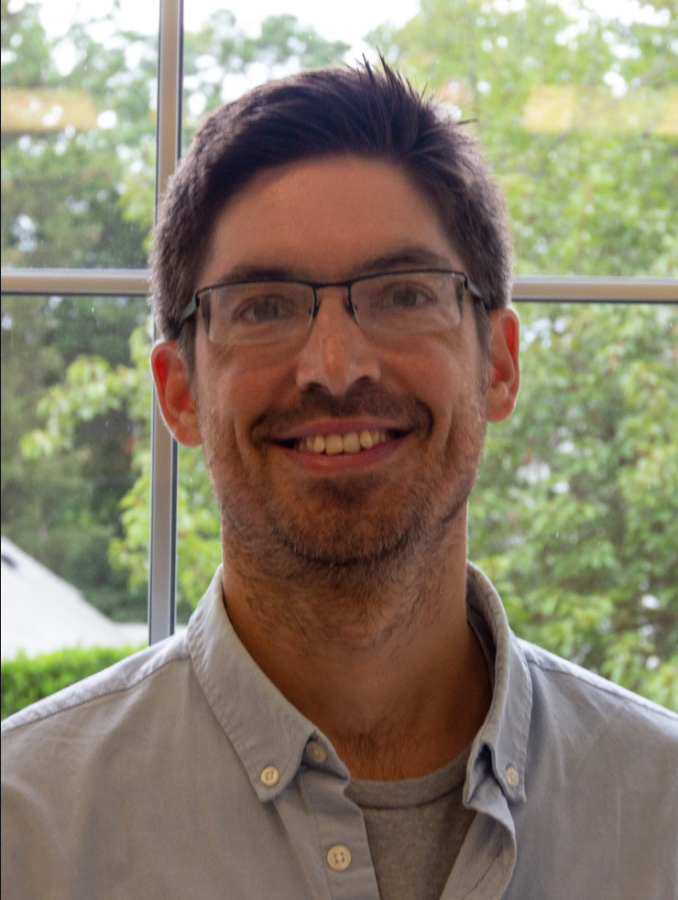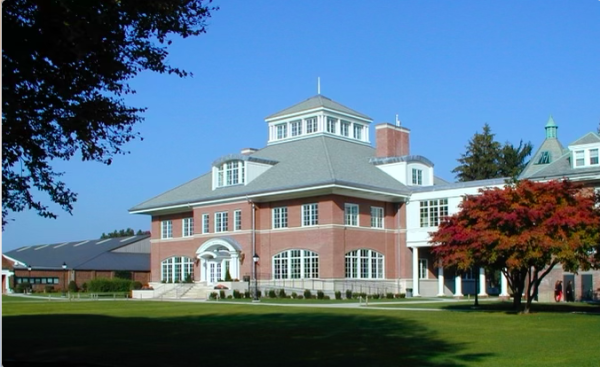Welcoming New Faculty Member Scott Hertrick and His Additions to FA
This fall, Friends Academy welcomes advisor and grades 9 and 10 English teacher Scott Hertrick into our community! Most recently, Mr. Hertrick worked at The American School of Japan, located in Tokyo. He taught highschool English there for six years, more specifically teaching a concurrent enrollment college class on creative nonfiction and 9th grade English. I got a chance to sit down and speak with Mr. Hertrick to find out the different ways he values his job and how he plans to bring these values to our community and classrooms on an everyday basis.
Through his international teaching experience, Mr. Hertrick became “more conscious of the fact that every student is coming into the classroom with a really different background and experience.” He will be sure to bring this principle to his classes and advisory this year at Friends Academy. It’s one that students should be aware of because it has helped Mr. Hertrick’s reputation as an approachable faculty member. A teacher’s job extends beyond just the threshold of their classroom. Being there to listen and help resolve a student’s concerns is what allows a teacher to have a deep impact on that student’s life.
` Mr. Hertrick was drawn to Friends Academy because it is an academically demanding environment. Mr. Hertrick only sees this environment as a productive one if students can still “grow on a moral level” as well as perform well in class. This goal of his brings up a valid point about the essence of education. The demanding education that students receive at Friends Academy is a gift not to be overlooked; however, an emphasis on moral development is rarely prioritized. With the Quaker SPICES, students are constantly reminded what core values are important. Unfortunately, this acronym does not touch students on a personal level. Students can memorize the phrase, but it can be difficult to incorporate these values into their daily life. It is the job of teachers – one of the few individuals who interact with students for an extended period of time – to both pose questions and identify areas of growth in a student. Mr. Hertrick will look to make major contributions in this aspect of teaching at Friends Academy.
Another topic Mr. Hertrick and I discussed concerns the questions teachers pose to their students and the manners in which they do so. Teachers will regularly ask students questions to which the former already knows the answer, looking for students to respond with the pre-formed correct answer. As this can be a useful teaching mechanism in STEM-based classes, the humanities should value more abstract student thinking – not even the teacher should know the answer. This in turn creates a circumstance in which the whole class becomes a melting pot of differing viewpoints that dissect the subject matter. Mr. Hertrick values these types of questions because they, “give students a sense of what they have to say actually matters.” He goes on to state, “I want your thinking to come to the forefront as opposed to you learning what I think.” This teaching style is significant because if students know that their voices are valued, their own confidences will grow in and out of school, subsequently bettering the society we live in today. Furthermore, grasping more than a teacher’s own viewpoint will develop a student’s ability to process information and develop their own analytical lens – no longer would they have to peer through a pair of teacher’s eyeglasses to develop ideas.
Through activities such as community groups and advisory, Mr. Hertrick has been able to interact with other students outside of his English classes. He also sees a number of unfamiliar faces at these gatherings. For many reading this, the idea of being new to a school community is either forgotten or inexperienced. Regardless of the amount of time you have spent at Friends Academy, it won’t hurt to say hello to Mr. Hertrick, wave, or even smile at him in the hallway. Welcome to Friend’s Academy, Mr. Hertrick!







